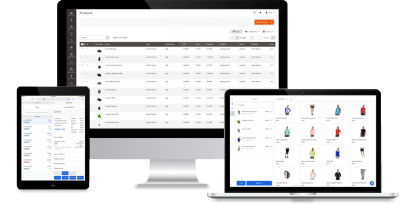Retail management software to maximize store efficiency and revenue
Retail management software (also known as retail management system, RMS) is a fast, easy-to-use, and customizable app to help merchants streamline online and offline store operations. From purchasing and inventory management to order fulfillment, Magestore provides the best shop management software to simplify business processes and reduce costs.

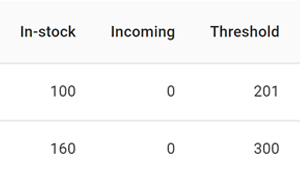
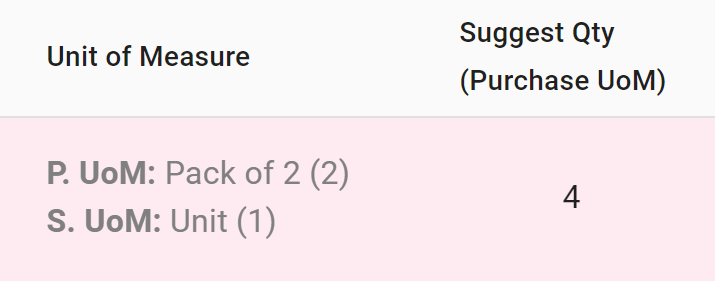
A single source of truth for all retail store data
Centralize all retail operations into a single platform. Now you can manage all business functions from purchasing to sales and fulfillment in real time.
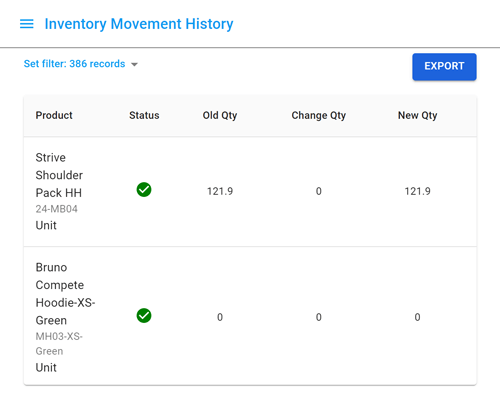
Keep your system fast and stable
Executing back office operations on the backend slows your website and affects overall system stability. With PWA technology, you can manage your stores from a separate frontend and reduce website backend workload. Run your business from anywhere on desktop and tablet devices.
Adapt to your team and scale
Restrict backend access and provide flexible permission for your team. Customize workflows to fit your unique needs. Add more users and devices with no extra costs.
Retail inventory management software to control stock efficiently and reduce paperwork
Know exactly what’s in stock and where each product is, even across multiple locations or warehouses. Get real-time inventory control and update inventory levels on the spot.
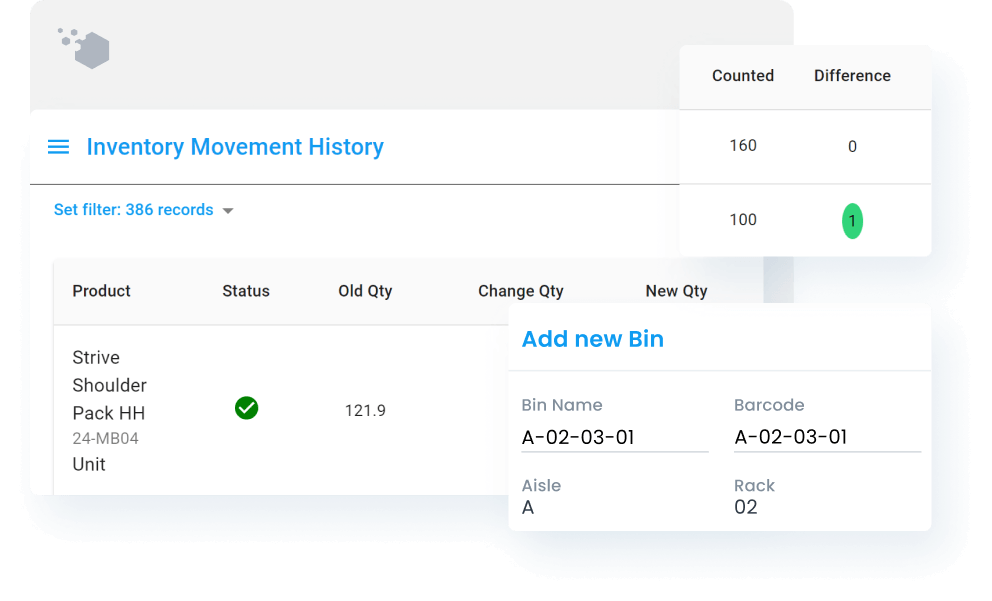
- Sync inventory information between your eCommerce website, point of sale, and back office in real time
- Use stock on-hand report to keep track of product quantity and location
- Count and adjust inventory to ensure you have the right quantity to sell
- Monitor all inventory movement from purchasing to sales
Data-driven replenishment with powerful retail vendor management software
A better way to manage suppliers and purchasing. Know in advance which items need to be re-ordered and prevent business disruptions due to out-of-stocks.
- Use historical sales speed to set up product low-stock threshold and know when to order from suppliers
- Create purchase order directly from demand forecast and save hours of manual work
- Manage unit of measurements to convert between stock units and purchase order units
- Track all suppliers and purchasing activities from one central hub in real time
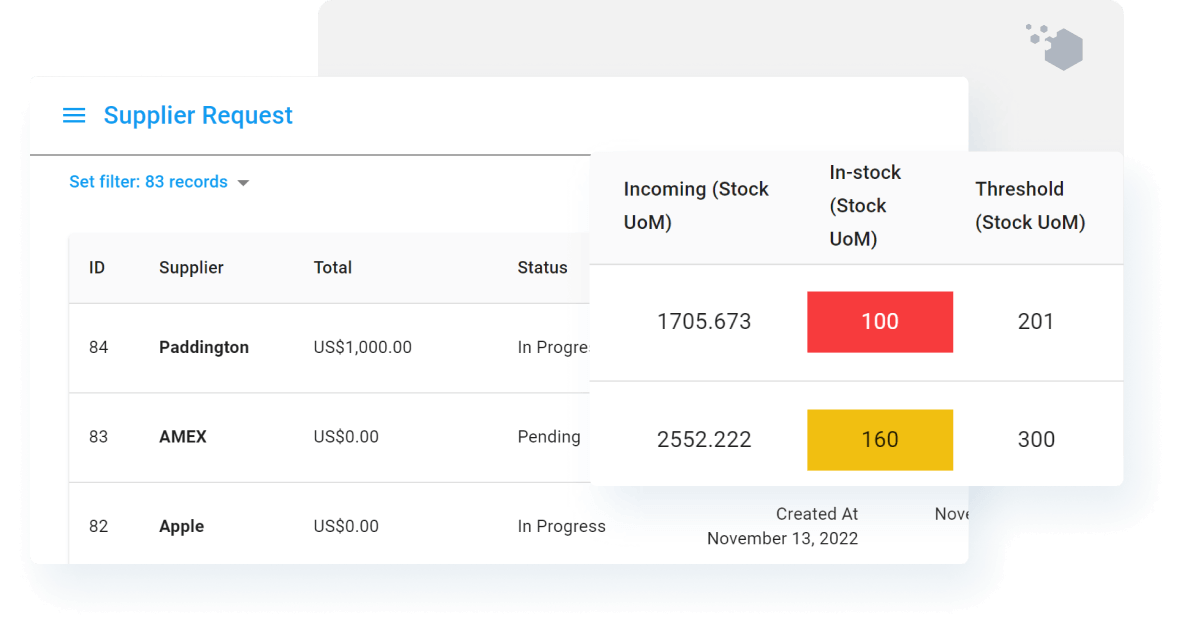
Easy omnichannel fulfillment with robust retail order management software
Comprehensive retail management solution to reduce manual and repetitive work. Process more orders with fewer errors.
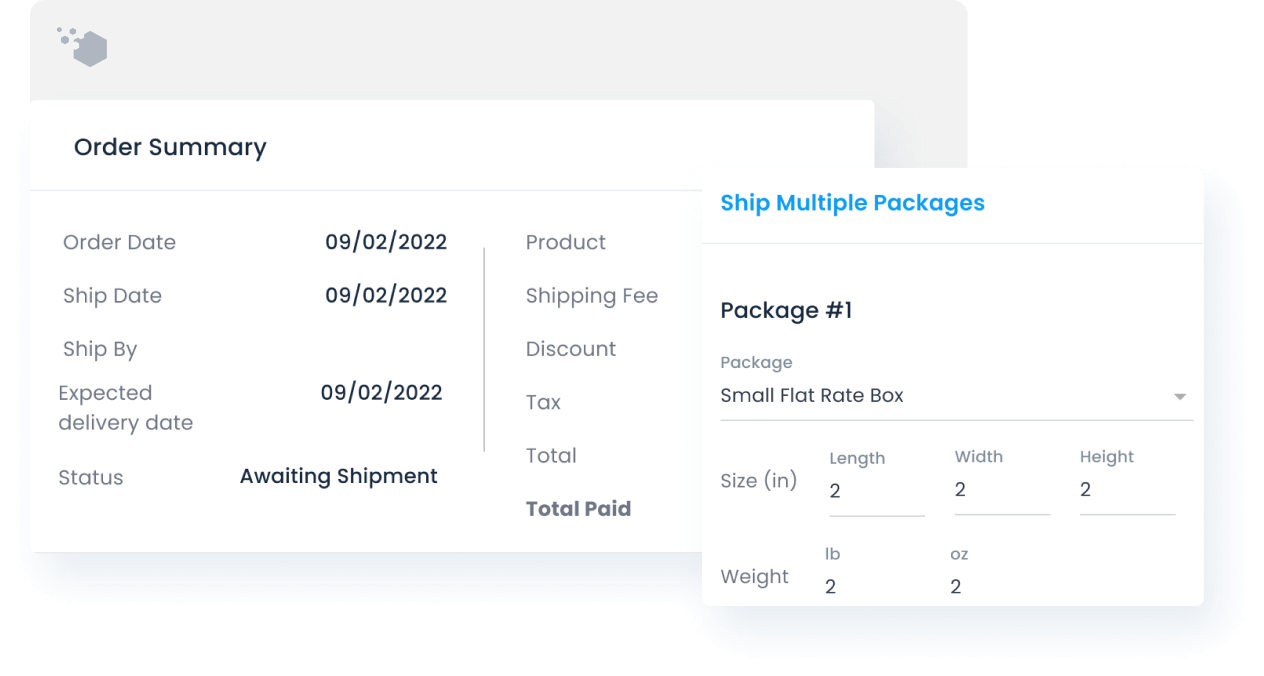
- Manage all orders from your website and offline stores in one system, in real time
- Check stock across multiple warehouses and selects the most efficient one for order fulfillment
- Process order faster with simple pick–pack–ship workflow
- Utilize eCommerce platform’s default shipping methods (UPS, USPS, DHL, and FedEx) or customize your system to integrate with 3rd-party shipping carriers
Comprehensive reports to make more informed business decisions
Create and export reports that are tailored to your specific needs and preferences.
Centralize all data in a platform, automating the process of collecting and analyzing data to increase efficiency.
Keep track of inventory levels and ensure you always have the right products in stock at the right time.
Gain insights into customer behavior to tailor your offerings and improve overall customer experience.

Save setup and maintenance cost
Add new warehouses and locations to your system without extra costs. Once your system is set up, you can use it from anywhere in the world, on any desktop and tablet devices with a web browser. Our solution is built on the eCommerce platform, so you’ll save maintenance cost running only one system.

Flexible permission and unlimited users
Empower your teams by giving access to the information and functionality they need to excel at their job. Set up user roles and permission levels for different members. Unlike other retail management systems, you can add unlimited users without any extra fees.

One-time payment and easy customization
Pay one time to own your solution forever. Customize your system to add new functions and integrations that fit your unique requirements. Our professional team is here to adapt your system to your workflow, not the other way around.
Get a complete solution for managing retail business operations with Magestore POS
From storefront to back office, Magestore’s got you covered with our integrated retail management solution.
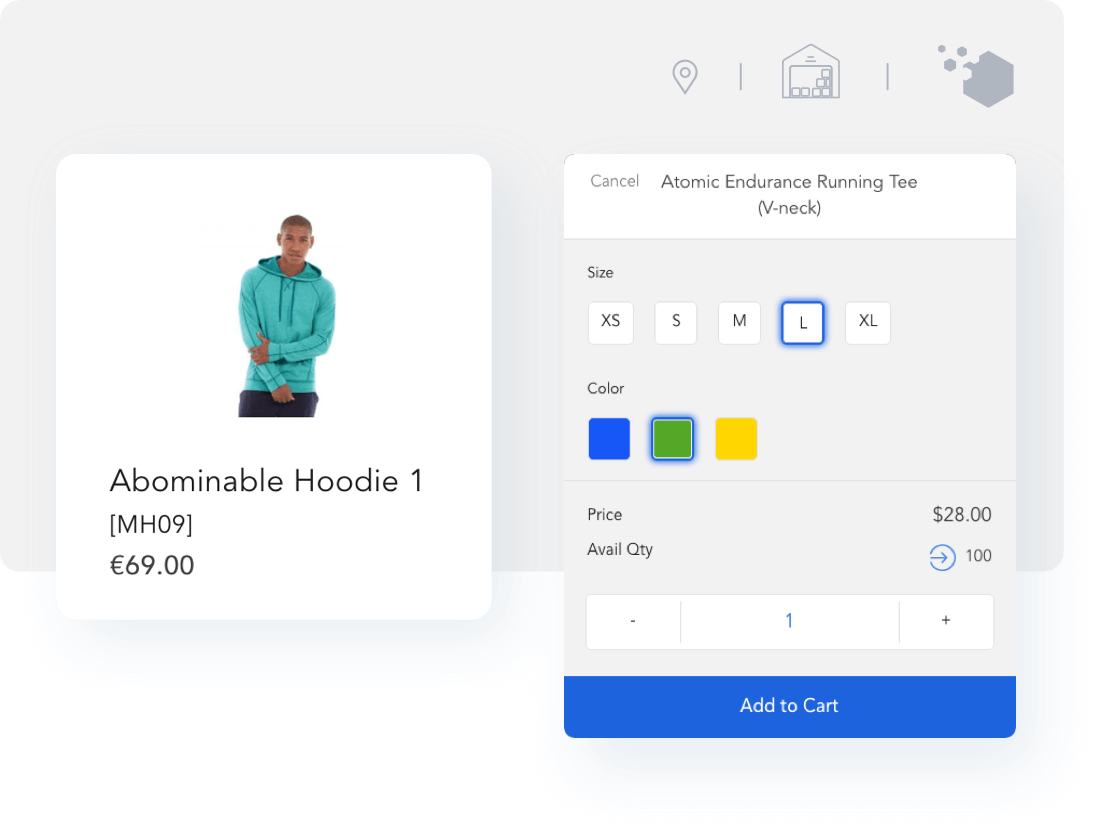
- Fast checkout
- Accept all payment types
- Apply promotions and loyalty programs across online and offline stores
- Sync data in real time between POS, RMS, and admin
Frequently asked questions
What is retail management software?
Retail management software or retail store software is technology that helps businesses oversee and streamline day-to-day operation of their store. Retail management system (RMS) usually includes a set of integrated modules for supply chain operations such as purchasing, inventory management, or order processing. It helps retailers centralize all data into a single source of truth and different departments to plan and track collaborations on all retail operations.
Why do we need shop management software?
Implementing retail operations software brings several benefits over manual or siloed operations:
- Real-time inventory visibility for your team and your customers
- Centralize all data on sales orders, inventory, and customers
- Standardize and automate supply chain operations such as supplier request, inventory management, or order fulfillment
- Reduce manual work and human errors so you can focus on customer relationship and employee training
- Boost retention with discounts and loyalty programs that don’t hurt your bottom lines
- Real-time analytics and insights to make better decisions
- Better customer experience and service
What are the differences between a retail POS system and a retail management software?
Point of sale (POS) software is a type of retail software that is specifically designed to handle transactions at the point of sale, or the moment when a customer makes a purchase. POS software typically includes features such as shopping cart, promotion, and payment processing.
On the other hand, retail store software is a broader type of software that can encompass a wide range of functions beyond just point of sale. Store management software can include features such as inventory management, customer relationship management (CRM), employee management, supply chain management, and more.
While retail POS software focuses specifically on transactions at the point of sale, retail management software provides a broader range of functions to help businesses manage their entire retail operation.
In the case of Magestore solution, our POS helps you boost sales and deliver a better customer experience, while our RMS streamlines your supply chain operations and save costs.
What are common features of a retail management system?
Retail store management software features vary depend on different business sizes and verticals. Here are the most common features of retail software:
- Point of sale: Transaction capability including checkout, payment, and inventory update
- Inventory management: Track and adjust inventory as you go
- Retail customer relationship management: Collect customer information and purchase history across channels
- Employee management: Open and close session, keep track of employees hours and sales commissions
- Product management: Set up and manage product catalog across multiple locations
- Warehouse management: Monitor and manage inventory going in and out of warehouses
- Report: Provide 360-degree view of your business to make better decisions
- Accounting capability or integrate with third party accounting solutions
What is essential hardware for in-store retail management systems?
Running a store requires a variety of hardware for transactions and inventory operations, including point of sale device barcode scanner, receipt printer, or payment terminals. Please refer to our blog post on POS system devices.
How much does a retail management system cost?
The cost of a retail management system depends on the complexity and scale of each business, including the following factors:
- Number of stores, users, and devices
- Features or functionalities you need
- Type of deployment such as on-premise or cloud-based
- Extra services or third-party integrations
A robust retail supply chain management software with advanced features and integrations for a large-scale business will cost significantly more than a simple system for small firms. Some vendors offer pre-configured subscription plans starting from $79 per month while other providers offer custom pricing.
With Magestore’s omnichannel retail management software, you’ll pay one time for a tailored solution that fits your business needs. You can add more users and locations to your system without extra costs.







